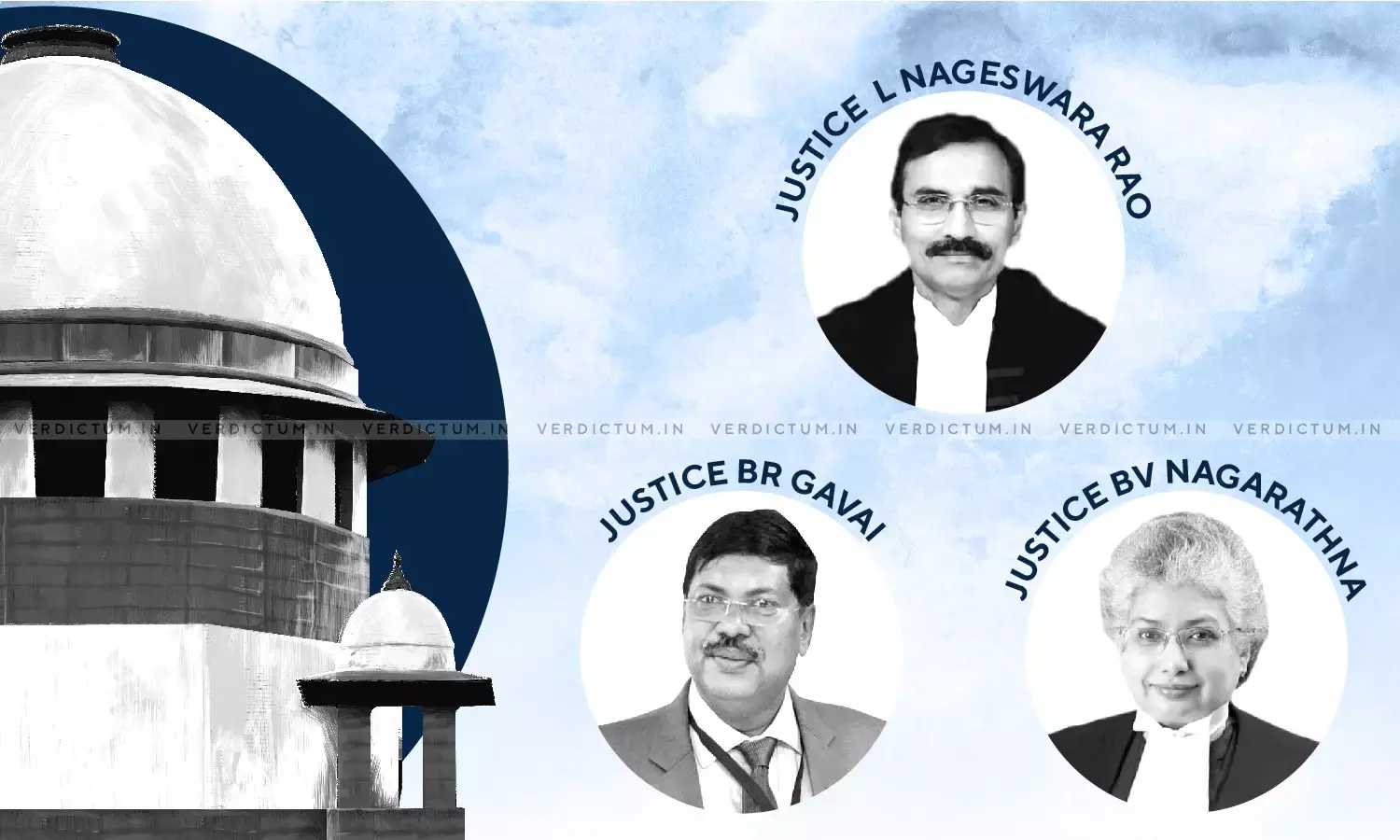Probability Of Reformation - Supreme Court Reduces Death Penalty To Life Imprisonment Of 30 Years In A Gang Rape Case
A Bench of the Supreme Court comprising of Justice L. Nageswara Rao, Justice B.R. Gavai, and Justice B.V. Nagarathna converted the death sentence of the Appellant to that of imprisonment for life, holding that the Appellant-accused was not given a fair opportunity to defend his case and there was a probability of reformation and rehabilitation.
The Court in this context, observed -
"No evidence has been placed by the prosecution on record to show that there is no probability of rehabilitation and reformation of the Appellant and the question of an alternative option to death sentence is foreclosed. The Appellant had no criminal antecedents before the commission of crime for which he has been convicted. There is nothing adverse that has been reported against his conduct in jail. Therefore, the death sentence requires to be commuted to life imprisonment."
Deputy Advocate General Ms. Ankita Chaudhary appeared for the State of Madhya Pradesh while Counsel Mr. Shri Singh appeared for the Appellant-Accused before the Court.
In this case, the Appellant along with one of his friends Satish was accused of committing a gang rape of an eleven-year-old girl.
The Appellant was charged under Sections 363, 366A, 364, 346, 376D, 376A, 302, 201 of the IPC and Section 5(g)(m) read with Section 6 of POCSO Act.
The Trial Court, after considering the material on record, sentenced the Appellant and co-accused to death as they were found guilty of committing heinous crimes of rape and murder. The High Court upheld the conviction and sentence imposed by the Trial Court. Appellants preferred an appeal against the judgment of the Madhya Pradesh High Court
The Apex Court after referring to the facts of the case observed that the Appellant had failed miserably to prove an alibi, in this context, the Court held -
"...Importantly, there is lack of any explanation for the scratch injuries found on the body of the Appellant. We are in agreement with the concurrent findings that the Appellant is guilty of committing the offences as charged and we find no fault with the conviction of the appellant."
Further, the Court noted that the Appellant was not given a fair opportunity to defend himself.
"This is a classic case indicating the disturbing tendency of Trial Courts adjudicating criminal cases involving rape and murder in haste. It is trite law that an accused is entitled for a fair trial which is guaranteed under Article 21 of the Constitution of India," the Bench opined.
Further, the Court held, "In respect of the order of conviction and sentence being passed on the same day, the object and purpose of Section 235 (2) CrPC is that the accused must be given an opportunity to make a representation against the sentence to be imposed on him. A bifurcated hearing for convicting and sentencing is necessary to provide an effective opportunity to the accused. Adequate opportunity to produce relevant material on the question of death sentence shall be provided to the accused by the Trial Court."
The Court also noted that the Appellant was 25 years old on the date of the commission of the crime and belonged to the Schedule Tribes community, earning his living by manual labor.
"The Appellant had no criminal antecedents before the commission of crime for which he has been convicted. There is nothing adverse that has been reported against his conduct in jail. Therefore, the death sentence requires to be commuted to life imprisonment," added the Court.
The Court held that after taking into account the barbaric and savage manner in which the offences of rape and murder were committed by the Appellant on a hapless 11 year old girl, the Appellant was sentenced to life imprisonment for a period of 30 years during which he shall not be granted remission.
Accordingly, the Court partly allowed the appeals and upheld the conviction of the Appellant-accused and converted the death sentence to life imprisonment of 30 years without remission.
Click here to read/ download the Judgment




